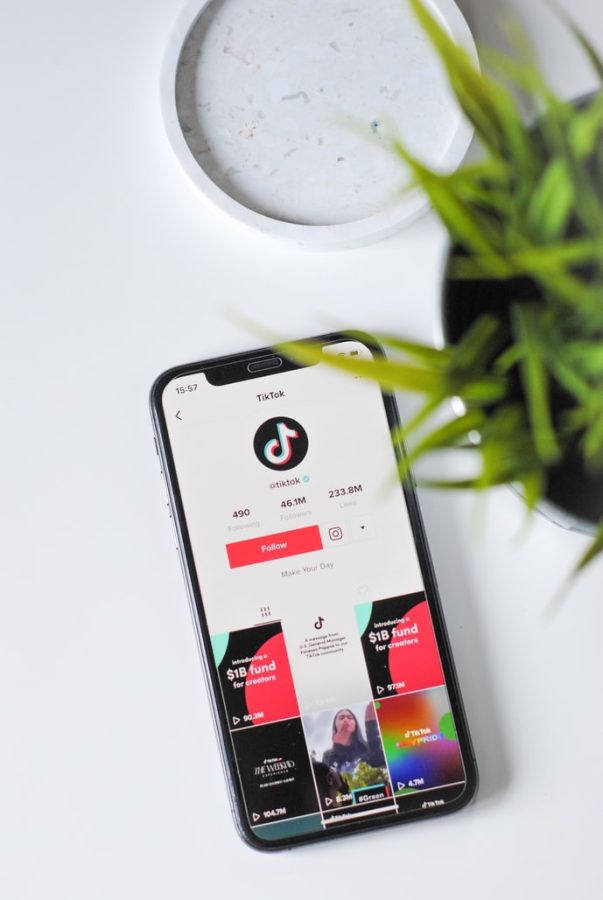‘BookTok’ rekindles love for physical books
Gannon English community reflects on the influence of social media on rise in reading rate
TikTok influences young adult sales at bookstores such as Barnes & Noble.
February 16, 2022
With how seemingly dependent our society is on technology, it may come as a shock that many still enjoy reading physical books.
E-readers had their days of fame, but popular social media app TikTok has been able to encourage both young and old to read paper again.
“BookTok” is a trending part of the app’s algorithm that shows viewers popular books of all genres. Many popular titles include Hanya Yanagihara’s “A Little Life,” “We Were Liars” by E. Lockhart as well as an abundance of books by author Colleen Hoover.
It is easy to admit that with age and busy schedules you can fall into reading slumps, but it just takes the right book to get you back into the hobby again. As children, we are encouraged to read, but observing classmates throughout high school led to the consensus that reading became something “not cool.”
TikTok is mainly known for its array of influencers, and in some cases, mind-dulling content. Beneath all that there are educational resources — including BookTok — with its positive nature of keeping people reading fiction, nonfiction and everything in between.
Gannon University students and faculty expressed their opinions and experiences with BookTok, as well as how technology impacts young people in particular.
Anna Brink, a senior English major, noted that when she does jot down titles recommended on TikTok, it depends on the creator as well as the genre of the title.
“I am also more inclined to read a book that has a cool cover,” Brink said.
Although the saying goes to not judge a book by its cover, it is what first catches our eye, regardless of whether we see it displayed digitally or physically in a bookstore.
Social media is surrounded by the idea of visual appeal, and from creator to creator, the appropriate representation of a person, place or even a book and its content varies.
Melissa Carlson, a junior triple-major student of English, theology and secondary education, is a daily TikTok user who views content from BookTok on her For You Page nearly every day. The videos she finds most intriguing are ones that provide a brief summary or tropes associated with the plot.
“The Hating Game,” “The Song of Achilles” and “Normal People” are a few of the hundreds, if not thousands, of titles shared by content creators on BookTok.
For many social media platforms, the comments section is an essential part of the application.
TikTok in particular allows users to share both their criticism and praise for titles mentioned in a given video.
Derek DiMatteo, Ph.D., an assistant professor in the English department, does not have TikTok downloaded but is still familiar with BookTok.
“I think it can positively influence young people by giving them an opportunity to offer reviews of books they have read to a wide audience,” he said. “And it also provides readers with a wide range of perspectives and discussions about books.”
Jennifer Popa, Ph.D., also an assistant professor in the English department and an active TikTok user, describes BookTok as a positive space on the app.
“By engaging with BookTok, we are the signal boosters for writers and the books they’ve written, but we’re also encouraging reading for all,” she said. As an English professor and a writer, I am contractually obligated to say that I am always supportive of any effort to encourage reading.
“Even when people insist they ‘don’t like to read,’ I tend to think they’ve just not found the right book yet.”
Technology and social media use are both heavily debated when it comes to their effects on younger users — whether they are more positive than negative, and vice versa.
From a student’s perspective, Carlson said: “I think social media and technology have a great impact on young people and their hobbies both good and bad.”
She noted that the amount of interaction on various subjects of content, including literature, greatly impacts user interest levels.
As an educator being asked whether technology is more harmful than helpful, Popa said she firmly believes in the phrase “all things in moderation.” She thinks that ignoring the digital literacy of students makes her feel as though she is not challenging them in ways in which they have the potential to be fruitful in their lives as young professionals.
“Technology is very broad and comes in many shapes and sizes, but I think it’s useful to have a sense of curiosity about yourself and your habits,” Popa said.
Although there may be a never-ending societal debate about technology, it is refreshing to know that many still enjoy the feeling of paperback books, and that social media apps like TikTok have creators still encouraging viewers to do so.
LIA EBERLEIN





